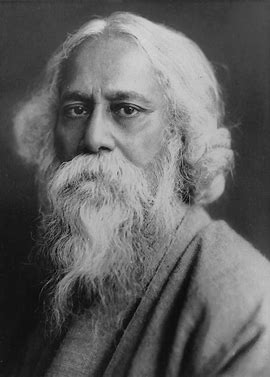It was a common sight in Indian Universities to see Marxists and Communists all around. Now a days, Indian universities see a shift to the right and a beyond right leanings. What I mean by a beyond right leaning is the deviation from the binary and an undermining attempt to mock the binary. Now, to clarify, not a supporter of Binary either but in this context the alignment of people with this kind of thought process entails behind itself a person whose Intellectual caliber I am most attracted these days. I say, Michel Foucault, is the Universal of the particularities that we see today, the path to the pathless and the path breakers who deliberately deliberate.
In earlier times, it was quite easier. You had a Bourgeois ideology and thinkers used to critique it. Then came, Foucault, who saw the critiques as the symptoms and not the cures. This demolished the binary of the oppressed and oppressor and in some sense the binary itself took the place of the oppressor with every individual left bewildered with the fact that they themselves contribute to the oppression by mediating the discourse of this binary oppression. Also, a staunch attack on the Universality of attainable knowledge and the Knowledge itself as the source to ignorance combined with a push to particular truths and particularities has made it the discourse of discourses and hence the source of all ideologies today. How weird is the fact that an attempt to delineate the universal made Foucault the universal. You might say, Foucault is big but not universal. To which I will respond he is. To condemn the binary is not now a liberal or ignorant position. It is now the post-modern and it is assumed as the new good.
My admirations for Foucault's works begin with his work "Madness and civilization". My Family, having a history of mental disorders, I could find myself through the Asylums where I saw my father, My Uncle, My Aunt and the worst of all, My mother. Although, I admire the man, but I know the ritual as a philosopher to critique the dominant ideology of the times towards a freer society. Why I am deliberately using the world 'Ritual' here because I believe, analogous to the epistemological break that Marx had,
"Philosophers until now, have only critiqued the ideology because they felt it is necessary to create a freer society. They real intent, if I deliberately provoke, is to do it ritualistically to keep it moving. Keep what moving? The ideology! As it cannot be eliminated. It is ever encompassing. But the more dynamic the ideology is, the less time the ideology has to affect a man, the less oppressive it can be. In the information age, ideology should not be like a stone inscription, rather it should become like a newspaper. Old within a day and new at the doorstep."
Many questions arise. I know. I say, let us keep it at hand. As a Staunch Hegelian myself, I believe in the historical movement of discourse. Ideology itself, being the dominant discourse of anytime, and mostly hidden, is whatever you do, say or believe or pretend to not say, do or believe. Since, it is very clear that the paradox with the critique of ideology program that Frankfurt school philosophers and many others sought to do in order to make a post-ideological society, went always to failure. It is very clear in the works of Slavoj Zizek and Alain Badiou the sublime nature of ideology which keeps it alive in the most brutal and critical atmosphere. Ideology is the Cockroach whose shell can survive nuclear radiations. Now is the need to create a better normative goal of all hitherto humanities and I seek to start it with critiquing the most genuine and admirably original thinkers of the last century.
Do I Really disagree with Foucault?
No. If I have to answer in a word. But there are nuances yet to be reinterpreted. I believe, it is one of the many interpretations of Foucault that Foucault himself did of his work. It is a common sense that only the person lying within the corpse of the person can know the person. It is also currently the dominant ideology, Realize your true self, your individuality and other Bhang bhosda. I believe the contrary. There is no true self, descriptively visible to self. Maybe you can see it but the moment you describe it, you are describing an alien. If there is, it is just someone describing some other person. Description is inherently alien. You simply cannot interpret an author. It is an extension of the Derridian Thought, "The Author is dead". I say, "The Author always plagiarizes and hence there are always co-authors." So, maybe you can understand Foucault better than Foucault itself. Let that possibility be open.
So, what are my Ritualistic disagreements with Foucault?
1. The Demolition of the Universal
Yes, I said it. I do not like his ontological attack on ontology itself and a press on the Episteme. I believe, it is beyond human to know the ontology, hence, Episteme is the only way. Different knowledge systems it is. But to say that Universal categories are non-existent and invented by man and has no real existence and it is in a way, oppressive, is a wrong conclusion of a wrong premise.
I agree here with Zizek's idea of an incomplete ontology. But no Ontology at all, come on. I see, the world as it is, is of course fallacious but the world is not there only and the structure in itself is not a human discovery, but a human invention is where I do not agree. I think on the question of the Discovery vs the invention, Man has to always invent his discovery. But why?
I think the reason behind this is that Man cannot comprehend the discovered. The critical faculty will question the episteme of the source itself. And the Source is always silent. Man, helpless in his accord, invents his own discovery by interpreting it. See, for instance, I am not saying that These structures of society and sexuality are God made or has a source other than man. I am saying, even if man is the source, he does not know from where did these come from? What do they entail? I would not like to dwell on the older questions like: How these structures oppress man and how were the invented and so on! I will ask newer questions in the line of Zizek, why only these forms and structures and not any different? I do not agree with the hidden assumption of every Philosopher before me, including Foucault and his analysis, that Man has cruel intent in creation of these structures to oppress and so on. I think, it is the sheer incompleteness of man, a sort of broken incomplete ontology of self that makes him work only within the interpretive paradigm, the inventive paradigm.
In other words, Philosophers earlier than me thought Man misinterpreted his every invention as a discovery or every interpretation as a fact, but, actually, Man can actually only interpret, He cannot know. Knowledge is not possible. Absolute knowledge, in Hegelian terms and unlike his thought, cannot be possible. I see, but I do not know if it is what everyone sees. I know, but I do not know whether knowledge is so universal. But it is better to guess that Knowledge should be universal, but I cannot know it because I am restricted. A school only teaches the curriculum. Beyond curriculum knowledge is not possible. Knowledge beyond the curriculum of language and senses is not knowledge, however, there is a strong possibility that it exists.
2. The Demolition of some Mosques which shouldn't have happened!
I believe, some sacred concepts that Foucault broke should not have been broken as universal because they had utility. Human nature, to be specific. Human nature, even if it does not exist, has a reason to exist. How will you explain the society formation of the world, Humans associate just like animals do? really? I do not agree. I do agree partially where there are contentions of Human nature.it is very deceiving at times. But I still believe Blind demolition of categories could have been avoided by creation of Nuance. The philosophy of nuance is something I had in my mind from childhood. I believe Human nature is made very nuanced and human comprehension, very naive. So, I conclude, It is not like, Human nature does not exist, but it is ungraspable in its entirety because of limitations of human comprehensions.
I have to work on these concepts more in future a more depth reading of Foucault is required. I believe I can even critique his analysis of historicity of sexuality and the further analysis and how it has affected the modern-day sexuality discourse. I even take some inspirations from his work of "The Archaeology of Knowledge". The only difference I have with him here, is that every Philosopher keeps himself as the breaking point of a symptom of the structure. Like Marx, Foucault also forgot here, that he is also building a monument of knowledge system which can be epistemized, if I use a word non-existent, I mean his analysis is not beyond the Archaeology of Knowledge. Also, it might help us to understand how information and intellectual property today possess a great problem to Capitalism and how it can serve as a breaking point. Here also, The inspiration of thought stems from Zizek. I conclude, with hopes of working in the Foucauldian frame and eventually demolish this structure as well. The structure of post-structure deserves a fall and what will come after it, is a mystery, might be a post-post structure or return to a structure alternative. We do not know yet. One thing is sure, the path to this will be to make the post-structural discourse assume a structure. Make the post-structuralist realize that he cannot escape a structure, however hard he might try, just like you cannot generate random numbers.
I Depart, here is a reminder quote for me, by me.
"Don't repeat the mistake of the past philosophers. Do not assume you are someone special and other than the tradition of philosophers. Make a theory within which your own theory can be kept. This self-consistency, if possible, should suffice mankind for a while. It will be a long-lasting theory, if not the last theory."











